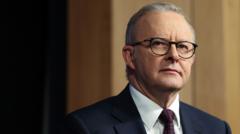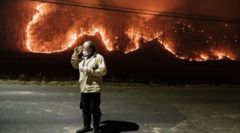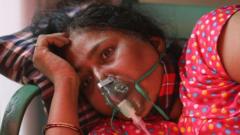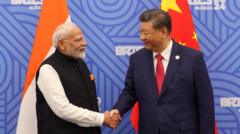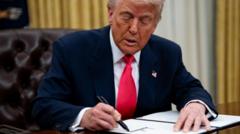The recent COP29 climate summit culminated in a historic $300bn agreement from wealthy nations aimed at supporting developing countries facing the brunt of climate change. While the deal marked a significant step forward, frustrations over fossil fuel commitments led to protests from various nations, underscoring the ongoing challenges in global climate negotiations.
COP29 Concludes with Landmark $300bn Climate Commitment for Developing Nations

COP29 Concludes with Landmark $300bn Climate Commitment for Developing Nations
In a fraught 33-hour negotiation, richer countries pledge significant funds to aid vulnerable nations in combating climate change, despite criticism and calls for stronger fossil fuel commitments.
The COP29 climate summit, held in Azerbaijan, resulted in a landmark agreement, with wealthier nations pledging a record $300 billion (£238 billion) to assist developing countries as they navigate the increasing challenges posed by climate change. The discussions, which stretched an exhausting 33 hours beyond schedule, nearly faltered before the head of the UN climate body, Simon Stiell, confirmed that despite the difficulties, an agreement had been reached.
Notably, the negotiations found themselves at an impasse as delegates, particularly from developing nations and those particularly vulnerable to climate shifts, expressed dissatisfaction with the proposed terms. The chair of the Alliance of Small Island States, Cedric Schuster, lamented the fate of sinking islands, urging a reconsideration of the terms presented.
“My people deserve better than this,” Schuster asserted, highlighting the urgency of the climate crisis for their communities. Protests from nations such as India indicated deep-seated frustrations; Indian representative Leela Nandan condemned the proposed target as inadequate, questioning its efficacy in addressing vital climate needs.
While celebrations erupted following the deal’s ratification at 03:00 local time on Sunday, the agreement notably sidestepped an expansion on fossil fuel use reduction commitments from last year's discussions. This topic has now been deferred until the next climate discussions scheduled for 2025, leaving many dissatisfied.
The newly committed funds aim to emphasize the disproportionate burden poorer nations face regarding climate change, even as they contribute negligibly to the overall crisis. It is expected that the funds will be sourced from a combination of government grants and private sector investments, with a focus on transitioning to renewable energy sources.
Furthermore, a commitment to tripling the resources allocated for climate readiness was included, countering the historical trend where merely 40% of available climate funding has been directed towards these urgent needs. Nonetheless, the collective goal of $1.3 trillion required by 2035 for climate mitigation poses a massive challenge.
The ongoing climate crisis has been underscored this year, marked by record-breaking temperatures and severe weather events, and the urgency was palpable as discussions began following the election of US President Donald Trump, known for his skepticism towards climate initiatives.
While the commitment received recognition, the geopolitical complexities of climate negotiations became starkly evident. For instance, powers like Saudi Arabia showcased resistance towards any proposals that might threaten their oil and gas-centric economies.
UK Energy Secretary Ed Miliband characterized the agreement as a critical but incomplete step forward, allowing pathways for investment from UK businesses while clarifying that it did not entail new financial commitments from the UK government.
As many nations approached the talks with renewed pledges to combat climate change, the choice of Azerbaijan as host drew criticism due to its intentions to increase gas production over the next decade, contrasting starkly with more ambitious environmental commitments from other countries. Looking ahead, Brazil has been touted as a more favorable host for COP30, reflecting global hopes for stronger climate leadership in future discussions.







